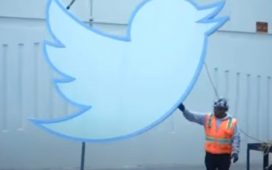In 2004, the author Damian Barr published Get It Together: Surviving Your Quartlerlife Crisis. Barr would go on to write poignant and beautiful books (including the memoir Maggie and Me) but this wasn’t either of those things. It was more of a fun, generational howl: how’s this stuff supposed to work? How are you supposed to become an adult in these conditions? The dream of life in your 20s – flailing around not sure what to do, mooching from one dead-end job to another but still managing to afford a gigantic, lovely flat in the centre of everything, failing romantically, hilariously, while it all turns out for the best, never feeling anxious for no reason or as if you’re slipping through the sieve of polite society, too small and weightless to remain in the in-crowd – well, that dream was cracking a little. As Barr put it in a radio interview, the question, essentially, was this: what if Friends, which by then was in its 10th and final season, wasn’t very true to life?
Definitely, the economic winds were changing: wages in the UK started to stagnate in 2003; in the US, graduate wages had been falling since 2000, and health cover cut for young employees, both graduate and not, since 2002. All of this, plus climbing student debt, was dwarfed by the 2007-2008 financial crash, after which everyone got much poorer, much faster. But the casual 90s elision between “young” and “carefree” was already not true by the mid-00s.
Like everyone, I’ve been thinking about Friends because of the premature death of Matthew Perry. He was more than the guy off Friends; his death poses deeper questions than about sitcom culture, mainly about the opioid crisis and the rapacious pharmaceutical industry that created it.
It’s hard not to mourn, along with the actor, the spirit of the 90s, with its relentless optimism and comically low stakes. It felt like a time when nothing could go wrong, and anything that did would be worth it for the anecdote. Was that just about the economy, stupid? Or were there other things going on? OK, I came of age in the 90s, and arguably everyone remembers with fond elation the decade they were young in, but I look at my kids now and I cannot for my life imagine them in 30 years, going “Ah, the 2020s – heady, foolish times.”
The funny thing about Friends was that its characters did worry about money, and healthcare, and work, but they emphatically did not worry about geopolitics. OK, that’s not what a sitcom is for – yet try to imagine Ross, a scientist, now never thinking about climate change. Today, Phoebe would be a member of Extinction Rebellion; Rachel would be into fashion sustainability; Monica would have seven different recycling bins, not 11 types of towel; Joey … well, Joey would be the same. You can have characters now who don’t worry about the future, but they’re not everyman characters: they’re in space, or the past, or heaven, or maybe hell.
We stopped worrying about nuclear annihilation in the 90s – cold war and all that – and that alone gave the decade this intense hedonism that Friends seemed to mirror straight back, with a tighter script. Its identity politics were all over the place. The implausible whiteness of the show was a major flaw – what conceivable myopia would lead you to set a comedy in Manhattan without a single black character until Charlie arrives in season nine? And Kathleen Turner’s trans character was a kind of piñata part, this flamboyant, colourful punchbag that everyone hit with a stick until sweets came out. But there was no hate in there. Two lesbian mothers made a decent, beautiful family, and Ross just had to make it work. There was always a subtext that, if nobody was a jerk, things would probably be OK.
Those three factors that stamped themselves on the 90s – economic boom, respite from any existential species threat and a generalised presumption of goodwill – are hard to prise apart, and maybe they do all boil down to the economy, stupid. Chimeric and debt-fuelled as the good times were, it’s hard not to miss them.








